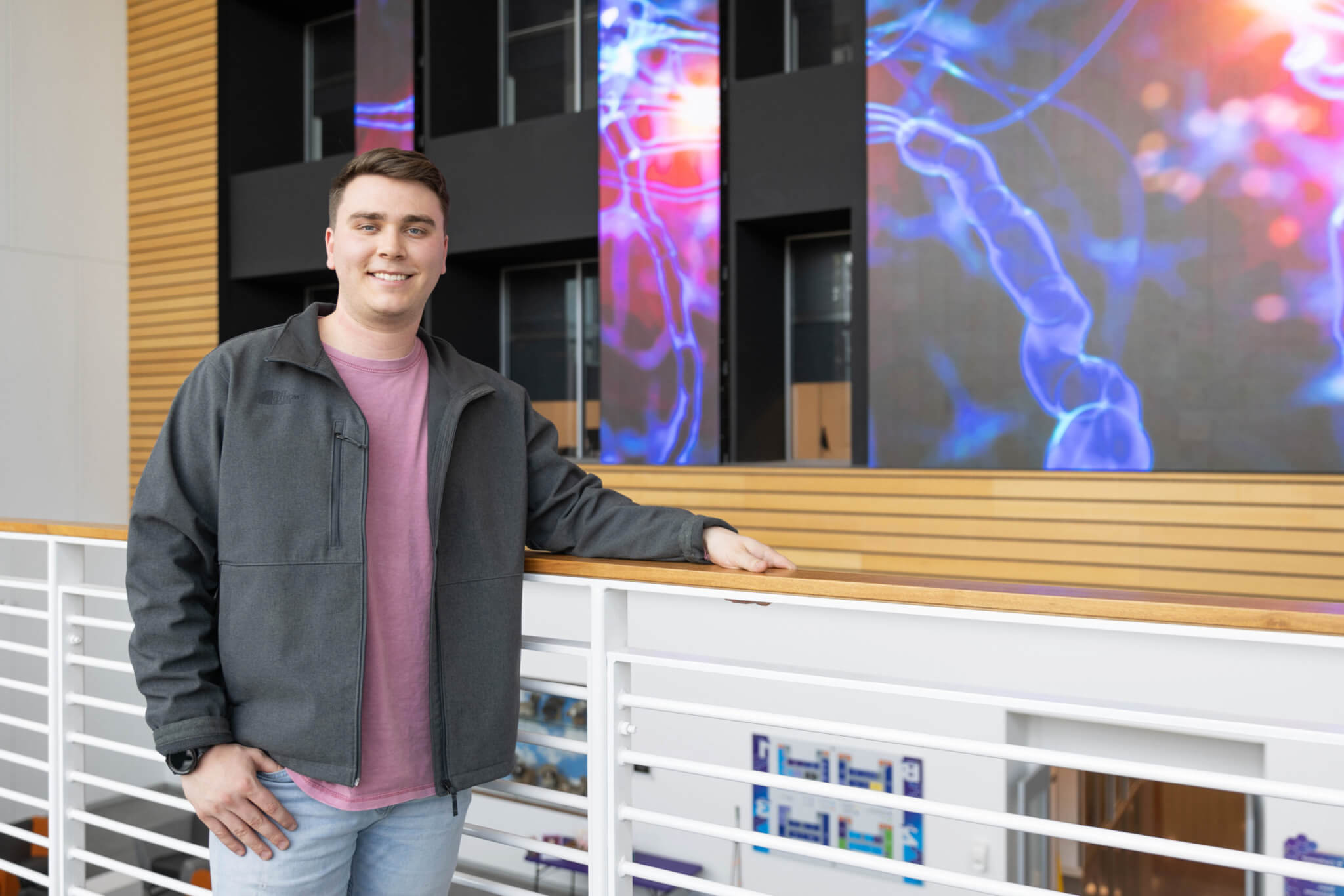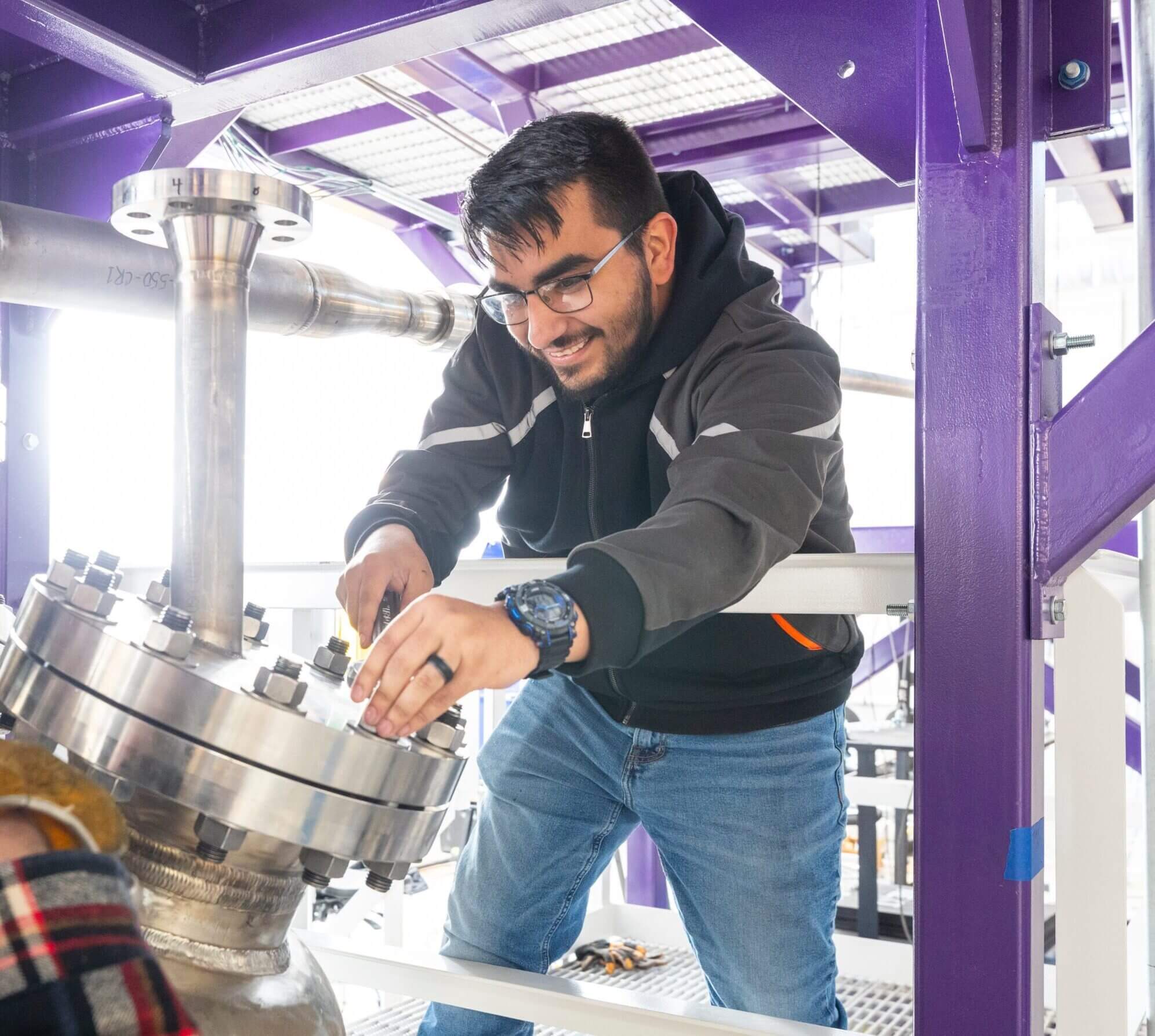ACU physics students gain extensive experience as undergraduates. Not mere observers of physics research, they are active, well-trained participants entrusted with key responsibilities in their work with faculty members and international scientists at national research laboratories. A degree in physics not only opens doors to a wide range of career paths but also equips you with skills and knowledge that are applicable in many aspects of life and varying career paths.
Majors
ACU offers a Bachelor of Science in Physics with five concentrations to choose from:
- Computational Physics: Computational Physics uses numerical analysis and algorithms to analyze complex physical problems. It combines physics, computer science, data science, and mathematics enabling the simulation, modeling, and analysis of physical systems from subatomic particles to black hole interactions.
- Engineering Science Technology: Engineering Science Technology is designed to combine critical physics and engineering skills with a second major to bridge cross-disciplinary gaps and help bring the power of these critical thinking, analysis, and design skills to new areas.
- Engineering Physics: Engineering Physics integrates the principles of physics with engineering practices. This interdisciplinary track finds a unique balance between the pure scientist focus of a physics degree and the pure application focus of an engineering degree to prepare you to make an impact on challenges in technology development across many different disciplines.
- Medical Physics: Medical Physics applies physics concepts to medicine and healthcare. Here you will work alongside other healthcare professionals and take either a clinical role through planning radiation therapies or a research role developing new medical technology and techniques.
- Physics: Physics applies the scientific process to understand the most fundamental rules of the universe. This involves developing critical thinking and analysis skills that can be applied to many STEM careers especially those involving research and development. While many students will directly enter a STEM career, this track also prepares students for additional graduate studies in physics, astronomy, astrophysics, and related fields.
Explore our High School Teacher Certification Tracks, designed to prepare future educators with a strong foundation in physics and related disciplines. Our tracks offer specialized training for those interested in teaching at the high school level:
- Composite Science – Engineering & Physics: This track combines comprehensive knowledge in engineering and physics, chemistry, and biology equipping future teachers with the skills to instruct a broad range of science courses. It covers fundamental concepts and practical applications, providing a versatile foundation for teaching various scientific subjects.
- Physics and Mathematics: This track focuses on the integration of physics and mathematics, preparing students to teach these interrelated subjects effectively. With a solid grounding in both disciplines, graduates will be well-prepared to help students understand the mathematical principles underlying physical phenomena, fostering a deeper comprehension of the material.
Student Opportunities in Research
ACU’s physics faculty trains students with real-world research through involvement with world-leading experiments. Students work at national labs including Fermi and Brookhaven National Labs and ACU’s own NEXT lab on campus. During these experiences, students interact with internationally known faculty and scientists, uncovering the ways the universe works and learning to steward that knowledge for the betterment of those around us.

“It’s rare for undergraduates to get any kind of physics research; it’s pretty much unheard of. That gives you a huge edge when you’re applying to other things. Normally if you go to a big state school, you won’t even have that chance. All the research will go to grad students.”
Skylar Mclerran ’24
Denton, Texas
PHYSICS MAJOR

Check out some of our current student research opportunities:
Electron-Ion Collider
ACU is part of an international collaboration beginning construction on the next generation of particle collider experiments (or ePIC) at Brookhaven National Lab. This experiment will study heavy nuclei and the spin of nucleons for the pursuit of greater global understanding. www.bnl.gov/eic/epic.php
SpinQuest
ACU plays a major role in the SpinQuest experiment at Fermi National Lab. This experiment uses a polarized ammonia target to study the spin of the proton by studying anti-quarks in the quark sea of the proton. spinquest.fnal.gov
NEXT Lab
The Nuclear Energy eXperimental Testing (NEXT) Lab has received private and U.S. Department of Energy funding to conduct cutting-edge research, placing ACU students and faculty at the forefront of advancing the technology of molten salt reactors to provide less expensive energy, safer and abundant water, and medical isotopes to diagnose and treat cancer. acunextlab.org
Sam Lopez ‘21
Research Engineer, ACU NEXT Lab
Student Outcomes
- The average starting salary for students graduating from the ACU Physics is $68,000.
- Recent graduates have been accepted into graduate programs from Duke University, the University of Illinois–Urbana-Champaign, Georgia Institute of Technology, the University of Texas at Austin, Indiana University, the University of Wisconsin and the Colorado School of Mines and Massachusetts Institute of Technology.
- 100% of Physics graduates are employed or enrolled in grad school within six months of graduation.
- 50% of STEM fields advance job opportunities for those with exceptional problem-solving skills. In our Physics program, we inspire and train students to approach every challenge with this mindset, empowering them to achieve their full potential.
